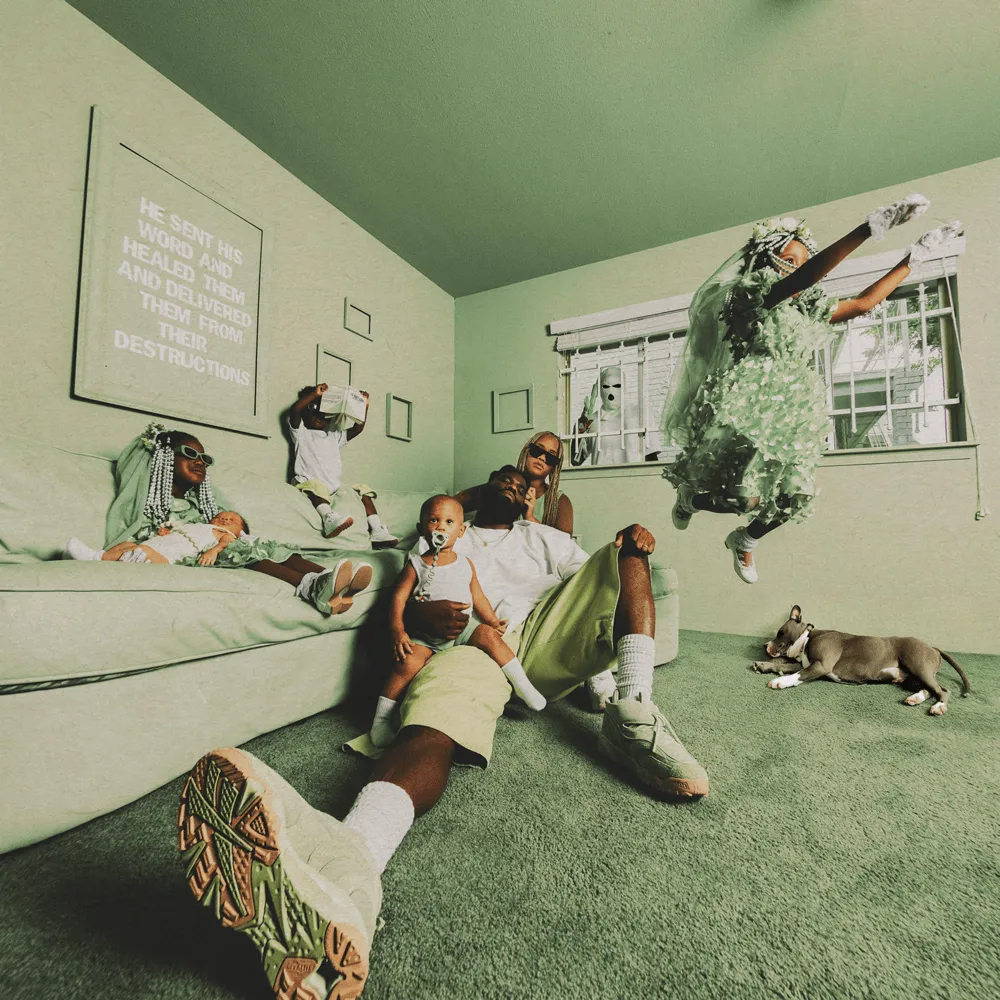“HOOD HYMNS,” a new album from the punchy Houston musician Tobe Nwigwe, pushes the boundaries of what can be considered conscious hip-hop (and Christian music) in an age of increasing urban identification and unconventional worship.
The 11-track effort is the latest from the 37-year-old family man, whose rhyming skills and uniquely spiritual productions have drawn the praise of listeners and critics alike since he burst onto the scene in 2016 as a YouTuber. Nwigwe was nominated for Best New Artist at the 2023 Grammys, the latest accolade in a successful career he has not been ashamed to credit to God.
Nwigwe is a Nigerian-American Catholic by extraction and later became identified with Protestantism, though his spirituality comes through as largely ecumenical in his music. Before this summer, he had released a dozen independent albums since 2017, often visiting Christian themes and the struggles of life as a Black man in America.
“HOOD HYMNS” maxes out on both, bringing a set of prayerful songs that span genres and sounds, featuring Nwigwe’s talents both as a rapper and a singer. Nevertheless, a cursory listen would make many Christians ask themselves: Is this kosher?
HOOD HYMNS. OUT NOW. 🥹
— TobeNwigwe (@TobeNwigwe) August 31, 2024
I truly believe this is my greatest body of work, I’m truly thankful for every single person that had a hand in putting this together. I’m truly thankful for my wife and I’m truly thankful to God.
Love all yall… I hope this move yall like it did me.🤲🏿🙏🏿 pic.twitter.com/Pald46qgb7
A leading conundrum is that the album is probably one of few in recent memory whose songs are labeled as explicit content but scarcely have any curse words. The first track, “ANOINTING (FALL ON ME),” is actually just a gospel song and doesn’t feature Nwigwe rapping at all.
However—and this is the kicker—the rest of the album features multitudinous uses of the word “nigga,” that pesky epithet whose ubiquity is all but taken for granted in the rap genre. Here, though, it has taken on a paradoxical twist.
Nwigwe’s signature minty aesthetic has never been about making traditionally “clean” music. He is not a gangsta rapper, to be sure, and he doesn’t rely on explicit themes, but he also is not making music for children. As such, his use of the n-word adds grit and “realness” but not at all in service of degeneracy.
I hesitate to call “HOOD HYMNS” a gospel or Christian rap album, but that's almost purely because of the use of the n-word, which is strictly a term of endearment on the new LP. Indeed, the word is integral to the album's overarching pro-Christian message.
Throughout its narrative, Nwigwe and the extensive crop of featured artists (Chance the Rapper, Fantasia, Andra Day, and PJ Morton, to name a few) lament the situation of the Black community with odes of praise interspersed with intercessions for their urban brethren. It really is an auditory experience to behold, if not just for its striking polarity.
Insofar as mainstream Black gospel/Christian artists shy away from using in their music an African-American vernacular word that many or most of them likely use in real life on a daily basis, “HOOD HYMNS” is a refreshingly authentic turn.
Ironically enough, the album is—in its own way—more explicitly Gospel-centered than much of modern Christian rap anyway. Couple that with the overtly conscious and political messaging—probing violence to materialism, poverty to reparations, and beyond—and you have quite the thematic quilt.
Pro-family messaging is also a feature of several tracks, keeping with a tradition Nwigwe has maintained throughout his musical career. He commonly collaborates with his wife Martica Ivory “Fat” Nwigwe on his releases, and each track on “HOOD HYMNS” ends with a Bible verse recited by one of their five children.
My favorite track is the church organ-infused ballad “HEAL,” which features gospel virtuoso Zacardi Cortez—one of my favorite vocalists—and Grammy-winning R&B crooner Anthony Hamilton. The lyrics tell of a friend who has committed a violent crime and is in need of repentance, for which Nwigwe and the others sing.
He just ain’t been the same.
But I know if you touch him, he will change.
But he needs more of you.
He needs to feel your presence.
He needs to know your name.
He needs a touch from Heaven.
But these demons are all that he knows,
and they follow wherever he goes.
So heal my niggas.
God, please heal my niggas.
God, please heal my nigga’s heart.
Now, I should note that there is a clean version of the album, in case you can’t stomach the “explicit” lyrics that, I would argue, make the album go. There are probably other reasons, too, why listeners of various hues might prefer a more tame rendering of Nwigwe’s offerings.
Even so, I remain captivated by the artist’s boldness in declaring, in his own way, that American Blackness is not in need of whitewashing or sanitization. Moreover, Black Christianity is not a monolith, and many of those on the margins have felt discarded by “church folk”—Black and White—who imply that faith must always be filtered.
For the better part of a decade now, Nwigwe has used the hip-hop medium to suggest otherwise. Within and outside of “HOOD HYMNS,” he has often pushed against the four walls of the Church in ways that have made me uncomfortable, or even with methods I disagree with.
It is undeniable, though, that he is doing something special, and with an end goal that serves to enrich the people spiritually and provide much-needed balance in an increasingly wayward hip-hop landscape. N-words and all, it’s just really hard to argue with that.
Nate Tinner-Williams is co-founder and editor of Black Catholic Messenger.









